Savvy Spotlight: Helen Iwata Of Sasuga Communications
One Woman's Drive to Maximize People's Potential
“To grow a prize pumpkin you must nip off the little buds.” Four years into running a communication training company, this Tokyo-based British woman now helps people perform better at work, one thing at a time — with extra confidence, motivation and positivity.
Now 25 years in Japan, UK-born Helen Iwata has seen much of what she calls mottainai (wastefulness): the mottainai of a misunderstanding, of something not being most effectively expressed, or of people not reaching their full potential. But the most prevalent, she believes, is the mottainai of people who could have a more enjoyable (and successful) life if only they had greater communication skills and confidence.
As a founder and president of the Tokyo-based global communications skills training company Sasuga Communications K.K., Iwata has seen first-hand the struggles many people face in the corporate world — pressure, lack of confidence and lack of listening and public speaking skills. She has also witnessed the impact on women of greater work, family and social demands, as well as their desire for work-life balance.
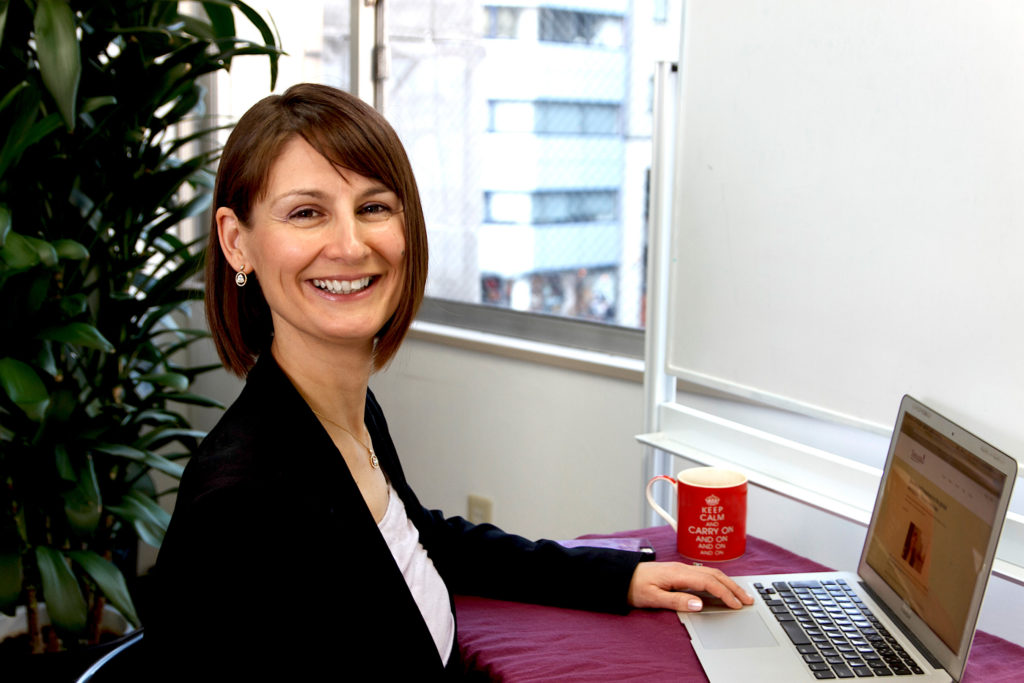
Helen Iwata at her office in Tokyo.
Now, four years into the launch of her own company, Iwata is on a mission “to help 2,020 people create communication habits for success and happiness in the global workplace by 2,020.”
Savvy Tokyo caught up with the entrepreneur to find out more about her growing business and how her practical experience in transforming people might help us all reach our full potential.
What brought you to Japan?
I’ve been interested in things foreign from a young age. I studied French, German and Spanish at high school and then started Japanese when I was at university. I came here for a month in my second year and absolutely loved it. After graduation I came back and now it’s been 25 years. I think staying was due to fascination — and, in my third year, I met my husband.
How did you get into training?
While I was a translator, people said I had a talent for training, so I became certified to deliver training courses. People would join sessions, clearly lacking in confidence and communication skills. We would work together — sometimes only for an hour in the case of one-on-one coaching — and then I would see this change. They would walk differently. Their wet lettuce handshake on entering the room would become a solid, confident one when they left. It was amazing. I loved seeing the smiles.
Why did you start your business?
Over the years I started to want to do things my own way a little bit more. I had an increasingly large team to manage, giving me less ability to do the things that I really wanted. At one point I realized I had a choice.
In December 2012 I decided to set up my business. I spoke to my colleagues and gave four months’ notice. There was a massive project coming up, so I completed it and then left. I established Sasuga Communications the next day.
How did you do it?
The setting-up part was easy because of my Japanese skills and the relationships I’d built. I had work in my first week. I was working from home so I didn’t need office space. After I got things going in the first 10 months, I developed a website. Then I found the co-working space Ginza Hub, where I could talk to other entrepreneurs and hold meetings.
For the first two years, I did translation and training: the things I loved most. Then I heard that to grow a prize pumpkin you must nip off the little buds, to ensure only it gets all the nutrients and energy. I realized I was growing a couple of mediocre pumpkins but I should be focusing on one big one. It was really hard to stop doing translation work but it was definitely the right move.
What has been the most challenging?
By far, it’s having too many ideas. I find it very hard to stay focused and make the most of each thing that I’m doing. I think that’s pretty common among entrepreneurs because there is the bright shiny object syndrome: you keep saying “oh, look at that!” and you go chasing after it.
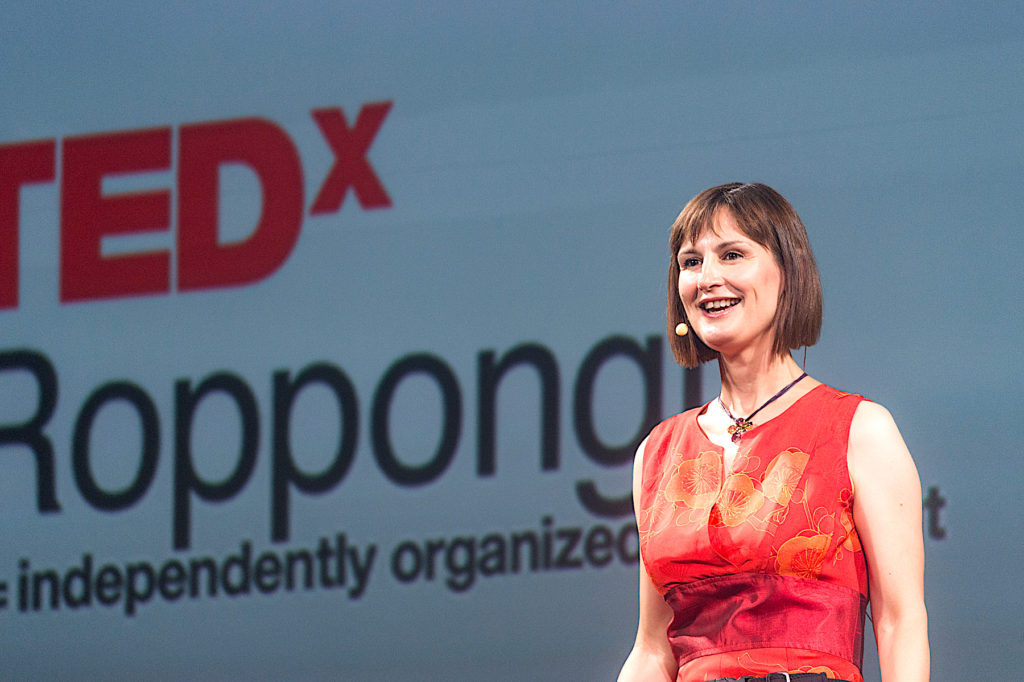
Iwata talks about “Why Don’t Japanese Women Ask Questions At Work?” during a TedX Roppongi event in September 2016. See the full video here.
How are you overcoming that?
I’m reading The Big Leap, and I love it. Rather than staying in the Zone of Excellence (where you do things well and make money) the author says we should progress to our “Zone of Genius.” For me, one Zone of Excellence is translation, but my Zone of Genius is working with people. I can feel where they are now, and help them to reach their potential in communication. When you recognize your Zone of Genius you can say no to things that are outside of it. You are therefore always focusing on areas of most value and on what is most exciting for you.
How have you adapted to the market?
When I started out it was all in-person workshops and coaching. Then, I discovered this amazing online world. For one of my corporate clients I was video coaching two men in different parts of China to do a presentation. I saw the results at the conference in Hong Kong, and it really worked.
Online training is still a relatively new concept in Japan so I think it has potential, but the in-person part is really important, too. The key is combining online courses with online or in-person coaching, which is part of what I’m doing now.
I think people are realizing that you need presentation skills not just for standing up in front of an audience, but also for having conversations with clients or using video conferencing to talk to your global teammates.
What influence have you had as a woman?
Much of the corporate work I do is with men, so through my online offerings and blog — on which I’m interviewing a working woman once a month — I’m aiming to do more for women. Being a woman is helpful to do that.
Quite often when I talk with senior male executives they really open up. I don’t have any evidence, but I don’t imagine they would open up the same way if I were a man.
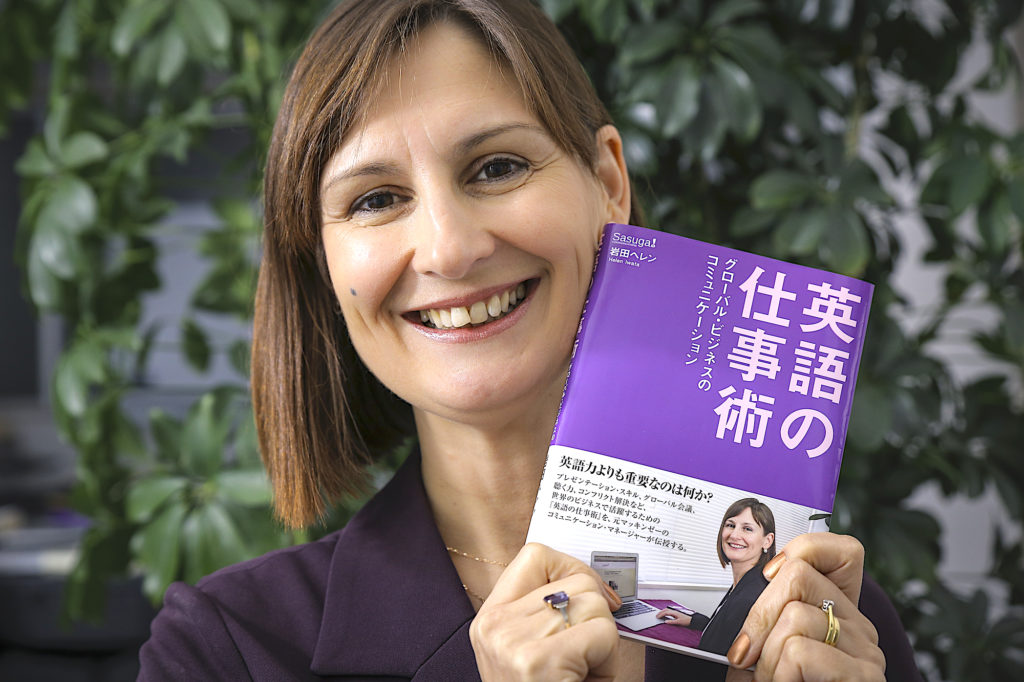
Iwata poses with her book “Eigo no Shigotojutsu” (English Business Skills), written in Japanese and published in 2016.
How do you stay focused?
I do yoga once a week and I have a great morning routine, which I’ve been developing over the years. First thing, I go out for a 30-minute walk in the park while listening to a podcast or thinking. Then I do 15 minutes of meditation, followed by journaling, which I love.
What’s next for the business?
I’m planning on doing a women’s retreat in Fukushima at the end of August. It will be an opportunity for the participants to think about how they communicate with themselves and other people. I’m envisaging 10 women who are working in a global business environment who might travel from Tokyo or other parts of Japan. It’s going to be a great opportunity to reflect, learn some skills and refresh, as well as support the region.
For more information on Helen Iwata’s company, visit the official website here.













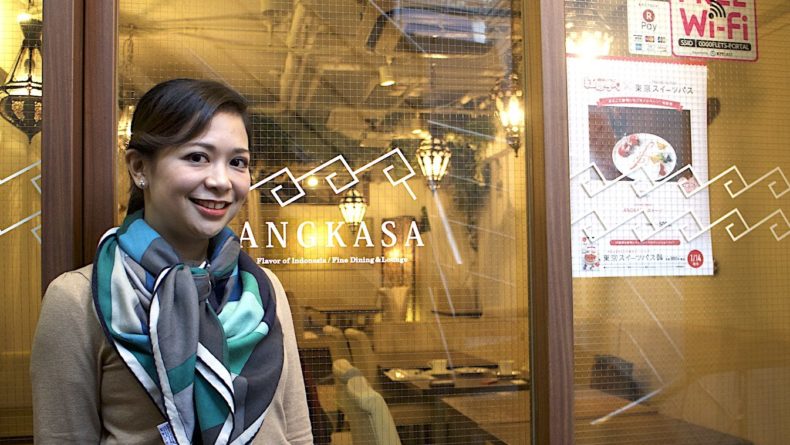
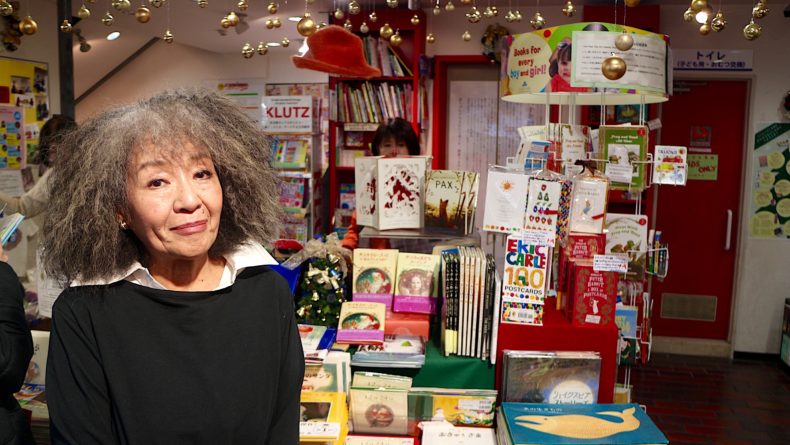
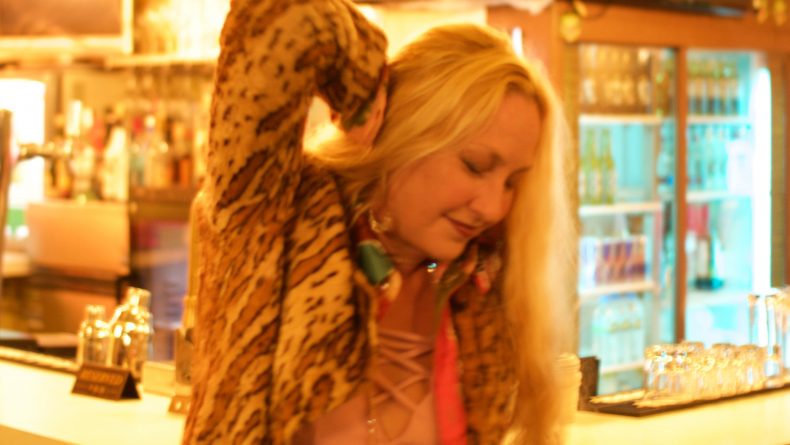
Leave a Reply